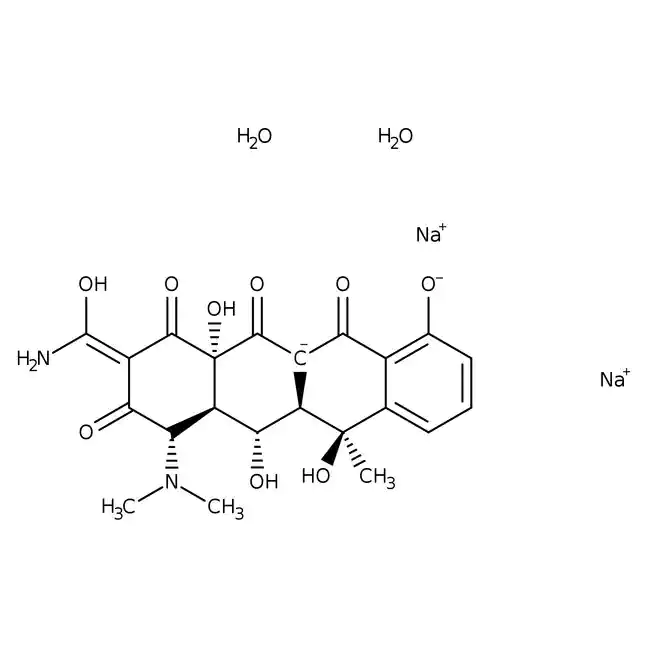Description
Oxytetracycline is an anti-inflammatory, antibiotic, and anti-proliferative agent shown to inhibit mitochondrial protein synthesis. Mechanistic studies show that this compound reduces cytochrome c activity which eventually causes cell growth arrest. Additionally, Oxytetracycline has demonstrated the ability to reduce murine bronchial inflammation. The anti-inflammatory characteristics of this agent are due to its ability to cause a decrease in IL-4, IL-5, IL-13, immune cells, and the ovalbumin-specific IgE. Data suggests that Oxytetracycline is also an inhibitor of NF-?B activation via phosphorylation and degradation of I?B-a.
nThis Thermo Scientific Chemicals brand product was originally part of the Alfa Aesar product portfolio. Some documentation and label information may refer to the legacy brand. The original Alfa Aesar product / item code or SKU reference has not changed as a part of the brand transition to Thermo Scientific Chemicals.
nnGeneral Descriptionn
-
- Oxytetracycline is a compound with broad-spectrum antibacterial activity. Furthermore, it also shows anti-inflammatory and anti-proliferative activities
n
-
- It can inhibit mitochondrial protein synthesis in both gram-positive and gram-negative bacteria
n
Application
-
- n
- Oxytetracycline is active against several species including Mycoplasma pneumonia, Pasteurella pestis, Escherichia coli, Haemophilus influenza, and Diplococcus pneumonia
n
-
- In laboratory experiments, oxytetracycline can be used to evaluate the acquisition of oxytetracycline-resistance genes, which are associated with the development of antibiotic resistance
n
-
- It can reduce cytochrome c activity, causing cell growth arrest
n
-
- It has been shown to reduce murine bronchial inflammation
n
-
- Oxytetracycline exerts its anti-inflammatory activity by decreasing the levels of IL-4, IL-5, IL-13 immune cells, and the Ovalbumin-specific IgE
n
-
- Oxytetracycline can be used to inhibit NF-?B activation via phosphorylation and degradation of I?B-a
n


